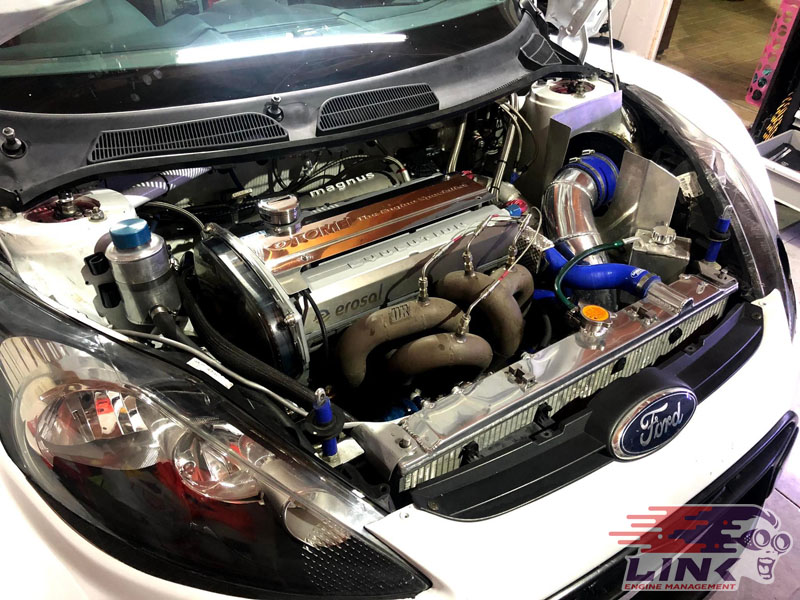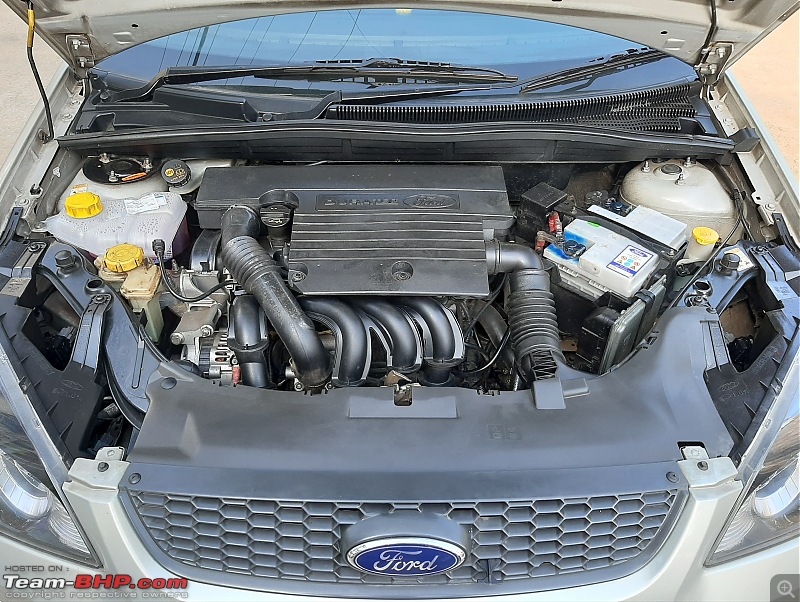Why Choosing the Right Ford Fiesta Engine Parts Matters for Longevity
Wiki Article
Opening the Power of Engines: A Comprehensive Overview to Performance and Efficiency
Comprehending the elaborate mechanics of engines is essential for both efficiency enthusiasts and day-to-day drivers. The solutions might redefine our method to engine performance and effectiveness in methods that are both informing and crucial.Understanding Engine Fundamentals
What comprises the essential mechanics of an engine? At its core, an engine is a maker developed to transform gas into mechanical power with a series of controlled explosions or combustion processes.The crankshaft after that changes this straight activity into rotational energy, which eventually powers the automobile. The camshaft manages the opening and closing of the shutoffs, regulating the consumption of air and gas and the expulsion of exhaust gases. Additionally, the engine relies upon a meticulously adjusted fuel-air combination, ignition system, and cooling down system to make sure optimum performance and effectiveness.
Comprehending engine basics additionally includes recognizing the importance of engine cycles, such as the four-stroke cycle, which includes consumption, compression, exhaust, and power strokes. Each stage is critical in making certain the engine functions smoothly and successfully. Proficiency of these fundamental auto mechanics lays the groundwork for checking out extra complicated engine characteristics and performance metrics, important for enhancing both power result and effectiveness.
Secret Efficiency Metrics
Key efficiency metrics are essential for reviewing an engine's effectiveness and power output, giving valuable insights for both suppliers and customers. These metrics work as benchmarks for engine performance, enabling for informed decisions in production, layout, and investing in.One of the main metrics is horsepower, which evaluates the engine's capacity to execute job over time. Torque, gauged in pound-feet, is another vital metric that indicates the engine's rotational force, straight influencing velocity and hauling capacity. Fuel performance, generally gauged in miles per gallon (MPG) or litres per 100 kilometers (L/100km), assesses how efficiently the engine transforms gas right into movement, impacting functional prices and environmental factors to consider.
Furthermore, thermal performance steps how well an engine converts gas energy into useful work, exposing insights into power losses primarily with heat. Emission degrees, consisting of CO2 and NOx, are also important, showing the engine's ecological impact and conformity with regulatory requirements.

Tuning Methods for Effectiveness
Tuning techniques play a significant function in boosting engine efficiency by enhancing performance metrics identified in earlier discussions (ford fiesta engine). Various techniques exist to tweak an engine, each adding to boosted fuel economy and lowered emissionsOne efficient strategy is adjusting the air-fuel ratio, ensuring the engine operates within the optimal burning regimen. A leaner mixture can enhance gas efficiency, yet it needs to be balanced to prevent misfires or engine knock. In addition, reprogramming the engine administration system can alter parameters such as ignition timing, which further enhances efficiency while preserving power result.
One more crucial strategy includes modifying the consumption and exhaust systems. Upgrading to high-performance air filters and exhaust headers can reduce back pressure, promoting far better airflow. This enables the engine to take a breath more freely, causing boosted combustion performance.
Additionally, the implementation of sophisticated adjusting tools, like dyno testing, gives exact information that enables targeted modifications. Frequently keeping an eye on these performance metrics makes sure that adjusting efforts generate the desired effectiveness results. Jointly, these strategies not only reinforce engine efficiency yet likewise add to long-lasting sustainability in engine procedures.
Upkeep for Optimal Performance
this content Regular engine upkeep is important for accomplishing optimal efficiency and longevity. A well-maintained engine not just runs efficiently yet likewise lessens the risk of costly repairs and malfunctions. Key components calling for routine attention consist of oil, filters, belts, and ignition system.Changing the engine oil at suggested periods is essential, as oil lubes moving components and stops overheating. Replacing oil and air filters makes certain that impurities do not hinder engine function. Overlooking these parts can cause minimized efficiency and prospective engine damages.
In addition, inspecting and changing used belts and hoses is crucial to avoid unexpected failings. Timing belts, specifically, ought to be changed according to the manufacturer's routine to prevent catastrophic engine damages.
Ignition system need to additionally be inspected and replaced as essential, since they play a vital role in ignition and fuel effectiveness.
Future Fads in Engine Modern Technology
Welcoming improvements in technology, the future of engine style is poised to revolutionize performance and performance throughout different applications. Among the most significant fads is the change toward electrification. Crossbreed and fully electric powertrains are becoming significantly traditional, using minimized exhausts and boosted fuel efficiency. This change is not simply a requirement yet a pattern driven by regulatory pressures and consumer need for lasting solutions.Additionally, technologies in products scientific research are resulting in lighter, stronger parts that improve engine efficiency while have a peek at this site lowering energy consumption. Advanced production techniques, such as 3D printing, permit the production of complex geometries that improve airflow and thermal monitoring, hence optimizing burning procedures.
Additionally, the combination of artificial intelligence and equipment discovering is set to change engine diagnostics and efficiency tuning. These modern technologies can evaluate huge amounts of information our website in genuine time, making it possible for predictive upkeep and tailored efficiency enhancements.
Verdict
In verdict, unlocking the power of engines needs a comprehensive understanding of their auto mechanics and performance metrics. Implementing effective tuning strategies and adhering to normal maintenance methods substantially improve engine abilities.In addition, the engine relies on a very carefully adjusted fuel-air mixture, ignition system, and cooling down system to ensure optimum performance and effectiveness.
Comprehending engine basics additionally includes acknowledging the value of engine cycles, such as the four-stroke cycle, which includes intake, compression, power, and exhaust strokes. Proficiency of these fundamental mechanics lays the foundation for exploring much more complex engine dynamics and efficiency metrics, crucial for optimizing both power outcome and performance.

Accepting advancements in innovation, the future of engine style is poised to transform efficiency and performance across various applications.
Report this wiki page